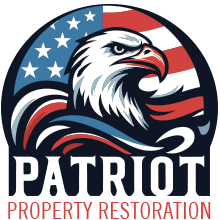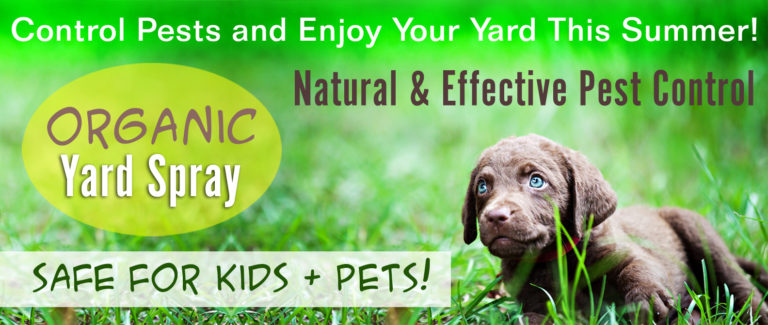Maintaining a dry and healthy home is a top priority for New Jersey homeowners, but what if the source of your mold problem lies just outside your walls? Poor yard drainage can lead to pooling and moisture close to the foundation of your home, paving the way for mold growth and potential structural damage.
Do you have a serious drainage problem, with water pooling in your yard? Poor yard drainage can be an unsightly nuisance, but it can also lead to much more serious health problems for your home. When left unchecked, the excess moisture caused by poor yard drainage and indoor humidity can create ideal conditions for mold growth in and around your house.
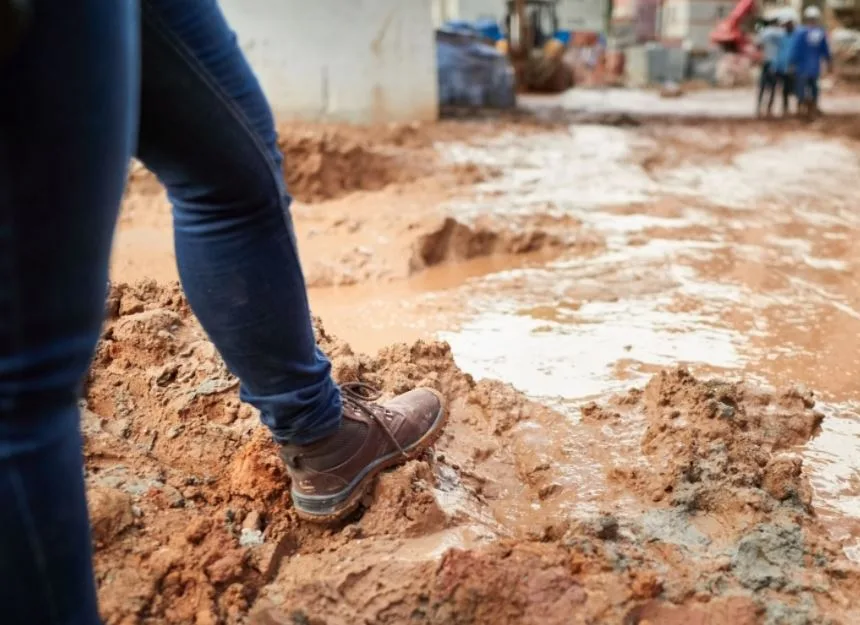
Inadequate yard drainage can infiltrate your home and calling in professionals like Patriot Property Restoration, LLC is crucial to remediate mold and protect your New Jersey property.
The Threat of Poor Yard Drainage
The exterior of your home is just as vital as the interior, and poor yard drainage can pose a serious threat to its well-being. When rainwater isn’t adequately directed away from your home, it can collect near the foundation, forming pools and saturating the soil. This persistent moisture against the foundation becomes a prime breeding ground for mold and a gateway for water infiltration into your living spaces.
Understanding Yard Drainage Issues
Yard drainage is part of maintaining a healthy and functional outdoor space. Yard drainage refers to the way water collects and flows across your property. Without proper drainage, excess water can cause a host of problems, from soil erosion to structural damage.
Understanding how water moves through your yard will guide you to implement drainage solutions that prevent flooding, water damage, and persistent puddles. This is a necessary step to ensuring that your yard remains healthy and beautiful and you don’t experience damage to your home due to the topography of your yard.
Common Causes Of Poor Yard Drainage
Soil Quality
The type of soil in your yard plays a big role in drainage problems. If your soil consists of too much clay, it can prevent water from filtering through, causing immediate puddles and flooding. The sandy soils typically found along the coastal areas of Monmouth and Ocean County, filter water quickly, which can create dry spots and insufficient moisture for your plants or lawn.
Soil compaction caused by heavy equipment, lack of vegetation and ground cover can also influence infiltration rates and how water moves across your property.
To determine the soil composition in your yard, conduct an at-home soil test, available at local gardening centers. If too much clay is the problem, you might need to install a French drain to remove excess water. Adding organic matter can improve drainage for sandy soils.
Poor Slope or Negative Grade
To prevent water from accumulating in your yard, it’s essential that the ground in your yard slopes at the appropriate angle away from your home – this is known as a positive slope. If there’s no slope or a negative slope where water or debris collects, it will form pools and may overwhelm your landscape drainage system.
Check the slope of your yard to ensure that your yard is shaped to drain water properly—fixing the grading with soil fill and landscape grading is how to keep water flowing away from your foundation and to maintain an area as dry as possible around the perimeter of your home.
Clogged Gutters
Gutters are designed to protect your house and yard from significant dangers brought on by standing water, overflows, and dripping water. Therefore, it is necessary to keep them clear of debris and clogging. Leaves, twigs, and seeds block the water flow into the downspouts, allowing water to spill over and create puddles that can contribute to poor yard drainage. If you can’t clean them yourself, schedule a professional cleaning service to come a couple of time a year to prevent building up debris that could block the flow of water coming through the downspouts.
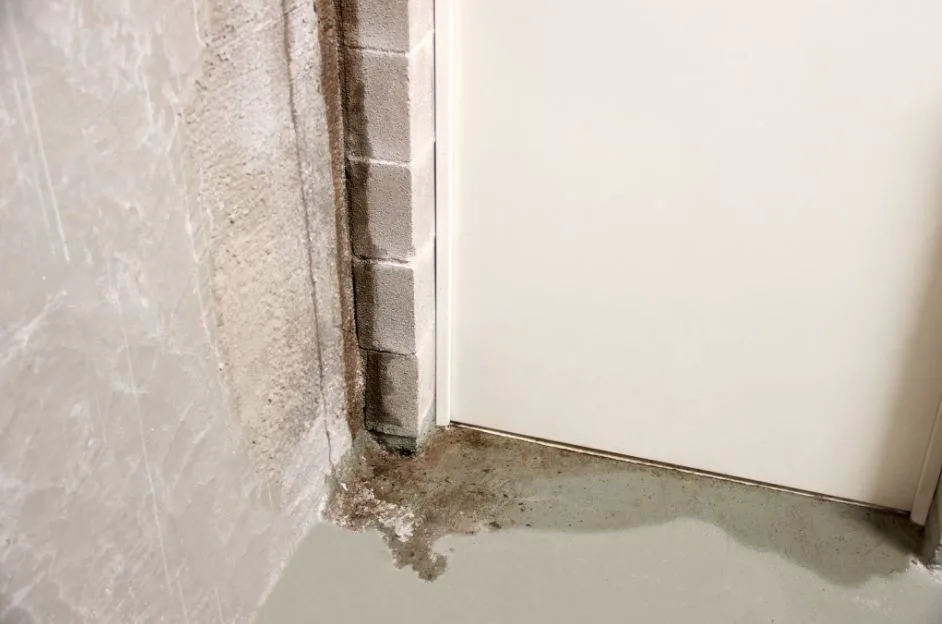
How Moisture Infiltrates Your Home
As water seeps into the soil around your foundation, it begins to exert hydrostatic pressure against the walls, creating tiny cracks and fissures. Over time, this moisture finds its way into your basement or crawl space, leading to dampness, musty odors, and unsightly mold growth.
Mold thrives in dark, damp environments, making your basement or crawl space a perfect habitat. Left unchecked, mold can spread rapidly, affecting not just the structural integrity of your home but also the health of its occupants. Prolonged exposure to mold spores can lead to respiratory issues, allergies, and other health problems.
Mold Growth and Its Implications
One of the more serious risks associated with poor yard drainage is mold exposure. Excess moisture in and around your home can create ideal conditions for mold spores to develop and thrive, potentially leading to a variety of health issues. When water seeps into walls or floors, it can cause warping or rotting wood that provides shelter for mold spores to develop.
Inhaling these spores can lead to respiratory problems such as wheezing, coughing, and congestion. If you suspect that your house has high levels of humidity or moisture, contact a professional mold inspection service to have your home inspected and to help prevent mold growth.
In addition to creating an environment conducive to developing mold, inadequate drainage also puts your home at risk for substantial physical damage. When water accumulates around the foundation of a house, it can cause cracking and breakage in the walls due to hydrostatic pressure, affecting stability and jeopardizing the structural integrity of the building.
Furthermore, siding or shingle deterioration can occur if there’s too much moisture in the air near your walls, leading to severe weather protection issues. Address these issues promptly and call 609-549-3058 for a mold inspection appointment with Patriot Property Restoration, LLC.
Why Trust Professionals like Patriot Property Restoration, LLC:
Addressing mold growth and water infiltration requires specialized knowledge, equipment, and expertise. Calling in professionals like Patriot Property Restoration, LLC is essential for several reasons:
- Expert Assessment: Trained professionals will conduct a thorough mold inspection to identify the extent of the mold infestation and assess the impact of poor yard drainage on your home.
- Targeted Remediation: Professional mold remediation teams have the experience to implement effective strategies for mold removal, ensuring the problem is tackled at its source.
- Preventive Measures: In addition to remediation, professionals will provide recommendations to prevent future mold growth, including improving yard drainage and implementing moisture mitigation techniques.
Fix Yard Drainage And Prevent Mold Growth
Dealing with mold control and poor yard drainage can be a headache for any homeowner. Excess water can cause damage to the foundation of your home, facilitate the growth of mold and mildew, and even make a mess out of your beautiful lawn. Fortunately, fixing this issue is possible, and there are practical steps you can take to fix poor yard drainage. One approach is to install a drainage system.
This involves digging trenches around the problem areas and installing pipe systems that direct water away from your property. Another option to control mold growth is to grade your lawn. This means that you adjust the slopes and contours of your yard to create a natural path for water to flow outwards. Ultimately, with some planning and effort, solving poor yard drainage is important to protecting your property from mold.
Protecting Your Home from Outside Moisture
Prevention is always the best defense against mold and water infiltration. Here are some tips to protect your home from outside moisture:
- Improve Yard Drainage: Ensure that downspouts and gutters are clear of debris and direct rainwater away from the foundation using extensions or drainage systems.
- Grading: Maintain proper grading around your home to encourage water to flow away from the foundation instead of pooling near it.
- Waterproofing: Consider waterproofing your basement or crawl space to create an effective barrier against moisture infiltration.
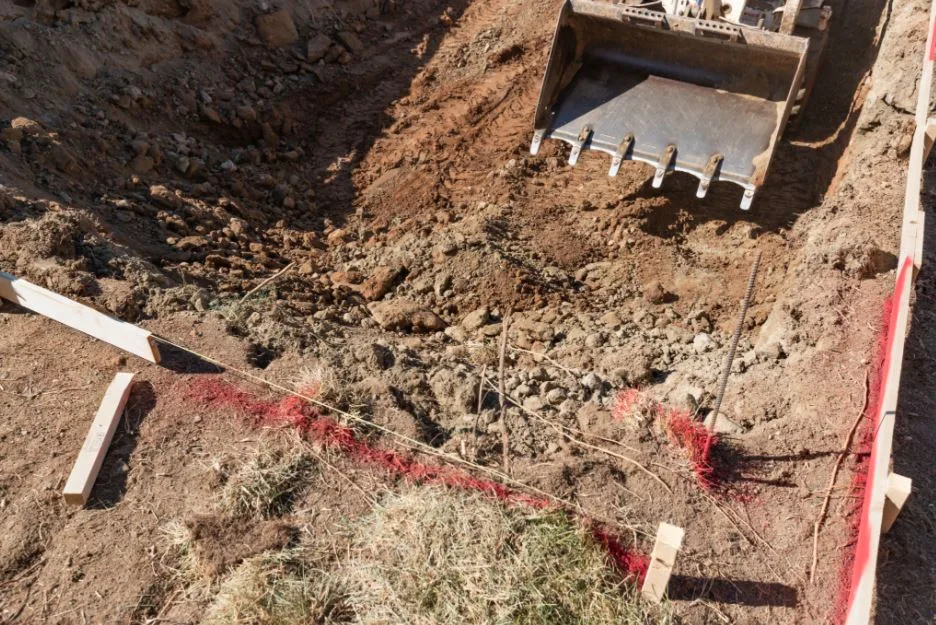
Poor yard drainage can lead to significant moisture problems, including mold growth
Calling in professionals like Patriot Property Restoration, LLC to remediate mold and address moisture issues is crucial for maintaining a dry and healthy living environment. By taking proactive steps to improve yard drainage and protect against moisture infiltration, you can safeguard your home.
Maintaining adequate yard drainage is a critical aspect of preserving not only your lawn but also the structural integrity of your home.
Many homeowners face common yard drainage issues like soggy patches, standing water, and leaks in the basement. These issues are often caused by poorly drained soil and low spots in the yard. Other factors such as a thick layer of dead leaves, roots, and stems (known as thatch) between the soil and grass, or heavy foot traffic leading to soil compaction, can also contribute to poor drainage.
